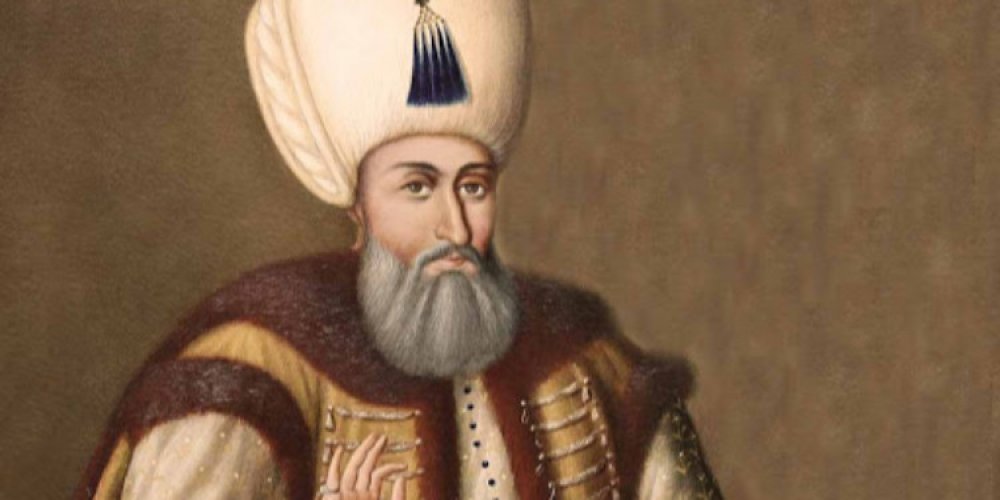
He suppressed the rebellion of a Mamluk nobleman who was assigned as a governor of Damascus by Sultan Selim and who revolted with the support of the knights of Rhodes. If Sultan Suleiman had not succeeded, the Mamluk state would have been resurrected, and the efforts of Sultan Selim would have been wasted. Then he marched on the Hungarian king, who killed the envoys sent to announce his accession to the throne. He took Belgrade in 1521 and then conquered Rhodes peacefully in 1522.
Francis I, king of France, who was in German captivity, asked for help from Sultan Suleiman. After the Hungarian king allied with Iran, the mortal enemy of the Ottomans, and provoked Wallachia-Moldova against the Ottomans, the sultan marched on Hungary and defeated the Hungarians in Mohacs within two hours in 1526. Hungary at last became an Ottoman territory.
He then besieged Vienna in 1529 to gain control over Holy Roman Empire, which had provoked Hungary and Iran, but he was unable to conquer it due to winter conditions. The Holy Roman-Germanic Empire ruled at that time in present-day Austria, Germany, Spain, and the Netherlands. The most powerful ruler of Europe, Emperor Charles V never appeared before Suleiman. By the way, for the Ottomans, this was not an empire, it was just the Kingdom of Nemtze (Austria). The grand-vizier was considered the diplomatic interlocutor of the emperor.
The sultan made expeditions to Austria, Venice, Moldavia and Hungary. He made peace with Venice in 1540 to prevent its slipping into German hands and then made peace with Holy Roman Empire in 1547.
Ottoman admiral Barbaros Hayreddin Pasha, who had 122 ships and 20,000 soldiers, also defeated the crusader fleet, which had 600 ships and 60,000 soldiers, in Preveza in 1538. The Battle of Preveza was the biggest naval battle in history up to that time. The navy conducted expeditions to India to protect the Muslims against the Portuguese. Yemen was conquered. From Gibraltar to the Persian Gulf, the seas came under Ottoman rule.
Then the sultan marched on Iran and conquered Baghdad in 1555. It is commonly said that without each other, neither Iran nor Germany would have had a chance to survive during the reign of Suleiman. Suleiman's last expedition was again in Hungary. He died during this expedition at the age of 72 in 1566. His body was brought to Istanbul and interred next to the mosque he had commissioned there.
He extended the borders of the 6.5 million square kilometers (2.5 million square miles) of land he inherited from his father to 14.9 million square kilometers. Some 10 1/2 years of his 46-year reign, which was the longest reign among the Ottoman sultans, was spent on horseback; he personally participated in 13 great expeditions. He suffered a lot to establish this magnificent state.
Among the Ottoman sovereigns, he took after his grandfather Sultan Mehmed II, also known as Mehmed the Conqueror, with his genius in diplomacy and politics, and his father with his military genius. His organizational and political skills were well developed. The fact that he imposed a tax on the four biggest states of the period, the Holy Roman Empire, Poland, Russia and Venice, and took France under his protection is enough to show the majesty of the reign of Sultan Suleiman. Thus, he played a decisive role in European politics and had an impact on the formation of modern Europe.
European public has always shown great interest in him. Hundreds of books about him were published in Europe even in the 16th century, while countless novels and plays have been written over the centuries.
He was known as the Suleiman the Magnificent or the Great Turk by the European writers of his period.
His reign was not only limited to military and political successes. Ottoman civilization also reached its pinnacle during his time. The most brilliant works were produced in every branch of art such as literature and architecture. Sultan Suleiman wrote over 4000 poems under the pseudonym “Muhibbi.”
“The people think of wealth and power as the greatest fate,
"But in this world, a spell of health is the best state.
"What men call sovereignty is a worldly strife and constant war;
"Worship of God is the highest throne, the happiest of all estates... ”
These verses by the sultan summarize his philosophy of life. In his time, the most talented people were trained in science, art, culture, politics and the military. He gave great value to scholars and craftsmen and was always proud of living in the same era as them.
Some of the poems of Suleiman the Magnificient were converted into songs.